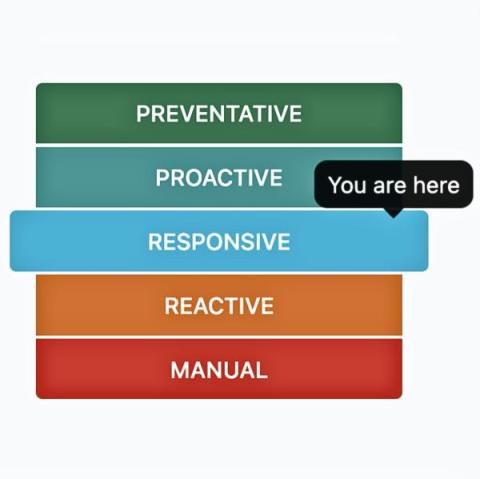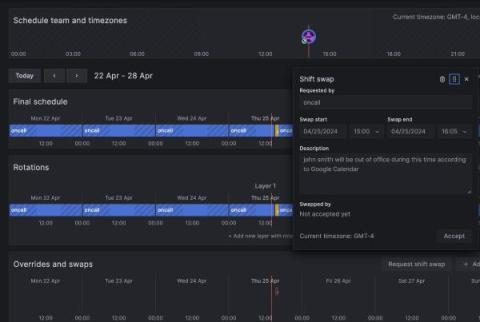Chart a course for Operational Excellence with PagerDuty's Operational Maturity Model
A top priority for many technical leaders is improving the performance and efficiency of their teams to maximize results and minimize costs. With the PagerDuty Operational Maturity Model, IT teams can reduce the total cost of ownership with better efficiency, mitigate the risk of operational failure to ultimately protect customer experience, and shift from a reactive state towards a more proactive approach—by using the PagerDuty Operations Cloud.











